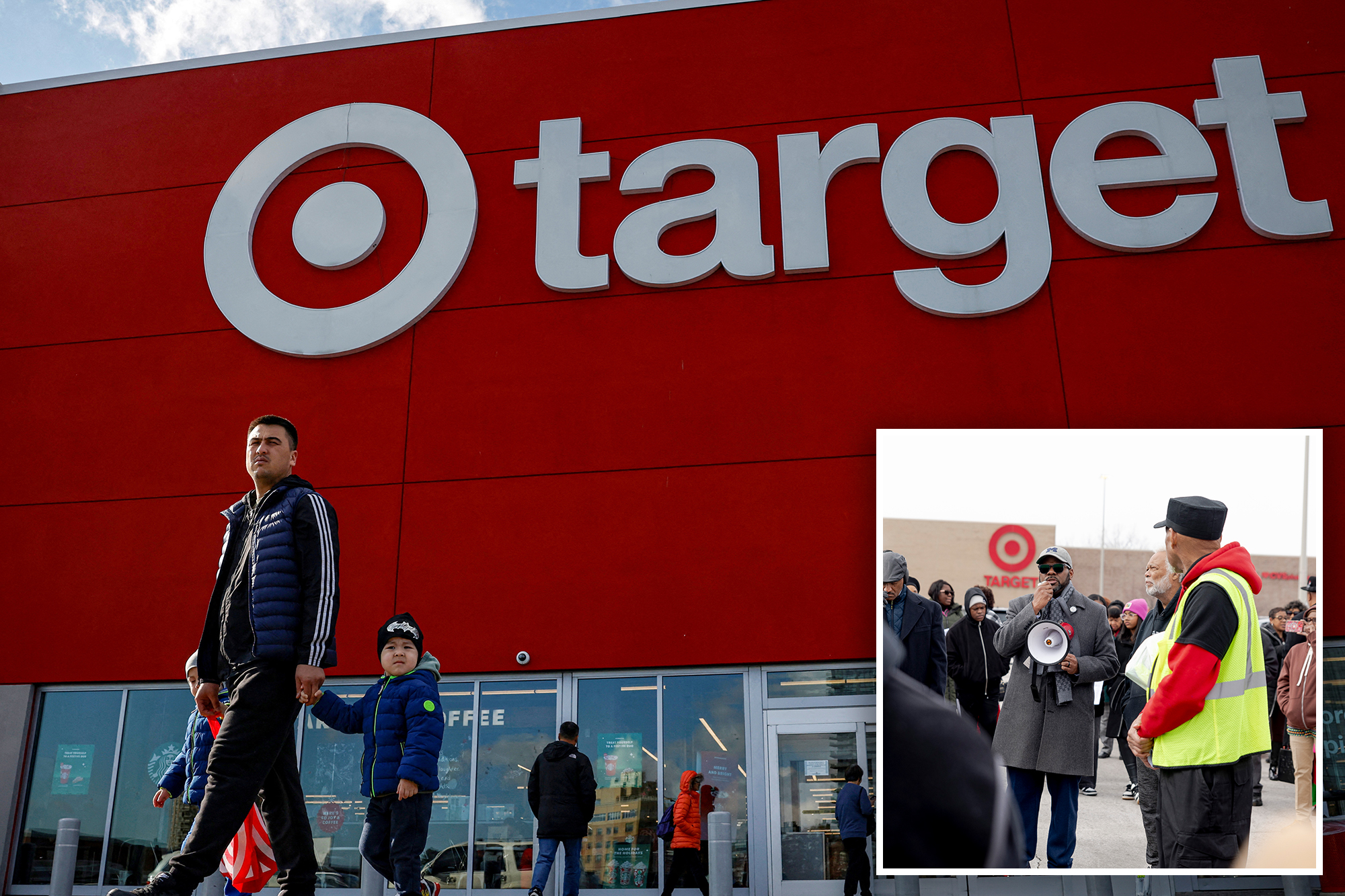A coordinated campaign used fake social media accounts to amplify the reaction against Target after the company reduced its diversity, equity and inclusion initiatives, according to a blockbuster report.
An analysis of the Israeli technology firm Cyabra found that almost a third of social media accounts promoting the outrage over the change in politics of the retail giant were false.
The Retailert, based in Minneapolis, announced that it would retreat its controversial initiatives, which had obtained contempt for conservatives to publicize articles such as friendly bathing dresses, after President Trump returned to the White House on January 20.
Cyabra reviewed thousands of publications on X-Propia de Elon Musk, before Twitter, from January 1 to April 21, and discovered that 27% of the accounts were inautence, many of which played an important role in pushing boycott narratives.
Cyabra’s data showed that inautetenic publications jumped by 764% after Target’s announcement, flooding the platform with calls to the consumer boycotts and viral hashtags like #economicblackout.
The director of the firm, Dan Brahmy, described the reaction as a calculated effort to make outrage.
“What happened to Target is a masterclass in manufactured outrage,” Brahmy said in The Post on Thursday.
“Fake accounts abducted the narrative, armed identity and pushed a boycott that seemed to be basic, but it was anything. This is how the operations of influence now work: they blur the line between real and false until no one can say the difference.”
Many of the fake accounts were designed to imitate real users and assumed the identity of black consumers or conservative commentators, according to Cyabra’s findings, obtained by the publication.
Some profiles pushed slogans such as “Target Fast” and “40 -day Boycott”, while others accused the retailer of “bending his knee” to Trump.
An X user with the handle Nenelsback published on January 27: “@target can’t get my money. It’s like being betrayed by a family member. We gave Target so much respect. Blk Folk called Target, Targe’t.”
Another post of profanity on January 24 said: “@target you f-iing chicken sh-tts. Are you a shame for Minnesota. Erase Trump’s demands on DEI programs?
A third party simply advanced the flames for dissent.
“I stopped going to the goal because of their trans husband support. I think it is a greater motivation for people to boycott the goal that Dei,” Nickolas Medina published on April 18.
All three were found for false accounts, according to the report, first quoted by USA Today.
“Not only do we look at what is said, we analyze how it is called and if they are real,” said Cyabra’s spokesman Jill Burkes in The Post.
“We mark accounts that publish in Lockstep, recycle the same hashtags and slogans, or only interact within closed loops from other suspicious accounts.”
Cyabra, who uses artificial intelligence to detect coordinated manipulation campaigns, did not find clear tests that would link the campaign with a specific foreign or national actor.
However, the tactic of inflammation of the war of culture through synthetic commitment has become more and more common, particularly in polarized consumption environments.
In a monitoring analysis of conversations on May 27 to June 3, Cyabra found that the campaign had not only persisted, but also intensified. In some days, false accounts represent 39% of the conversation, which cannot occur to genuine users.
Cyabra has seen similar tactics used against other major brands, from fast food chains to technology companies.
“The game book is similar: a polarizing moment abducts, floods the area with false voices and allows real users to do the rest,” said Burkes.
“This is exactly what happened with Target. And it works: shares dropped $ 12 billion and real people joined the boycott thinking they were part of a large land. Many are still.”
The publication has sought a comment from Target.
Last month, Target reduced the forecast for sales for a whole year. CEO Brian Cornell blamed several heads, including “the reaction to the updates we shared [DEI] In January. “”
Minneapolis activist Nekima Levy Armstrong, who launched a base boycott of February 1, told Usa Today that he was not aware of the misinformation campaign identified by Cyabra.
“I am not in X and I know that our people in Minneapolis have no involvement in this situation,” said Armstrong.
#Fake #Social #Media #accounts #promoted #reaction #target #deployment #DEI #Masterclass #manufactured #indignation
Image Source : nypost.com
